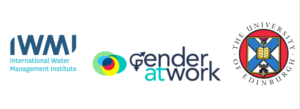This action research project brings together academics, experts in social inclusion and reflective learning, and practitioners working in Nepal’s community-based natural resources management (CBNRM) in order to recognise and critically reflect upon roots and processes of injustice as they operate within their own professional practice. We did so as the necessary first step to re-imagining gender equality and social inclusion in Nepal’s CBNRM and, in time, to transforming those injustices.
PLEASE WATCH OUR PROJECT FILM (15 minutes, with Nepali subtitles) by clicking “Accept and view” on the image below (or watching on YouTube here)
[Film Acknowledgements: We thank our amazing Director Joel Elias of Kathakali Productions, and Anjana Lamsal for the Nepali subtitles]
Whilst social inclusion, equity and justice are central to the challenge of sustainable development they remain hard to deliver in practice, given entrenched systems of patriarchy, casteism and other forms of discrimination that continue to operate in both societal and professional contexts in Nepal. Within CBNRM for example, so-called ‘lower’ castes are routinely marginalised in local environmental management institutions, whilst professionals in the sector experience gender-based discrimination within their work, families and ‘private’ lives.
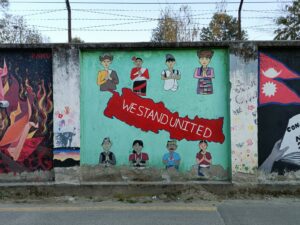
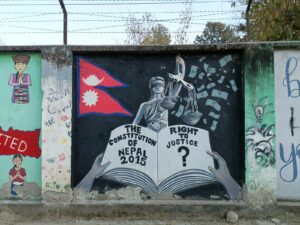
With a focus on these social injustices, our project involved a series of monthly workshops in which we engaged with a range of critical reflective and ‘transformative learning’ practices, that aligned with our participatory action research approach:
Reflective learning
-
- ‘A deliberate process of becoming unsettled about what is normal…and recognising that…how [one] personally understand[s] and act[s] in the world is shaped by the interplay of history, power and relationships’ (Eyben (2014) International Aid and the Making of a Better World. London: Routledge. p.20)
Transformative learning
-
- Within transformative learning, individual experience is the core element that generates critical reflection & dialogue
- Transformative learning takes place when the process leads us to open up our frames of references, discard habits of mind, see alternatives, & thereby act differently in the world (Mezirow)
Participatory Action Research (PAR)
-
- At its heart is collective, self-reflective inquiry that researchers and participants undertake, so they can understand and improve upon the practices in which they participate and the situations in which they find themselves.
- The reflective process is (a) directly linked to action, (b) influenced by understanding of history, culture, and local context; and (c) embedded in social relationships.
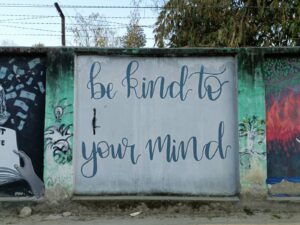
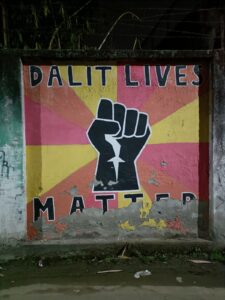
We ran 8 hybrid workshops over 8 months, involving presentations from facilitators, invited speakers, individual reflection, collective conversation, and the co-creation of a range of different materials. We engaged with theories and concepts including power, adult learning, leadership and participation; and we heard stories and experiences from women and men about their own journeys, frustrations and strategies of coping and promoting change.
The project involved 20 participants working in community forestry, integrated watershed management, biodiversity conservation, and disaster risk reduction, across a range of government departments, international NGOs, Nepali NGOs, grassroots organisations, advocacy organisations, policy research institutes etc. A mix of men and women, castes, seniorities and career experience were involved.
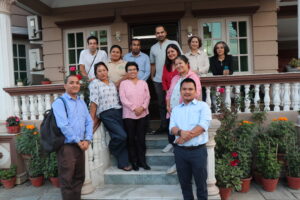
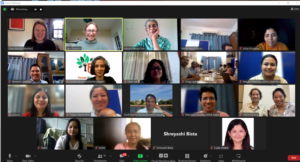
The project aimed to build participants’ skills and confidence to apply their reflective learning in their work, to raise awareness across the CBNRM sector, and to promote academic understanding of how best to support practitioner-led change. Our project film (which you can watch above) centres the experiences of the participants and facilitators and captures some of their reflections on being part of the project. It is necessarily a partial view of the project, but some reflections from participants include:
“Seeing yourself was great learning – before I was looking at others, for example community members, and I had not thought before about myself and how I fit into different contexts“
“We talk about ‘awareness’ of social inclusion, but internalising is different…some people, even activists, talk about the issues, but you can’t find it in their behaviour – they have not internalised it…we need to change our own behaviour“
“We need to reflect not just on our own experiences of, for example, harassment – that is easy – but we also need to think about how we exercise power over others”
“There is a new generation coming – youth are less discriminatory, but they enter discriminatory systems and hierarchies when they start work“
“The workshops were helpful for me to see from different angles – to see other people’s thinking and analysis on the same issue, to widen my own beliefs“
“It was great to connect with others – as a platform for getting to know each other“
“Also, the nicest part was being able to speak in Nepali, as the essence of things are lost when they need to be translated…we were able to speak our hearts out, and to express our feelings“
“In my project work, I am now thinking through an intersectional lens – I had done this before, but in an ad-hoc way…the workshops helped by sensitising me to be sensitive to cultural practices“
“I have shared about the project with others in my project team…I am thinking to do a similar discussion platform here, as normally meetings are focused on project agendas only“
“The workshops have given me confidence to use reflective methods in my teaching and research“
“Everything is a learning process – there is no stopping…we take our learning to another context, but that might be different, so we have always to adjust – so we are always learning“
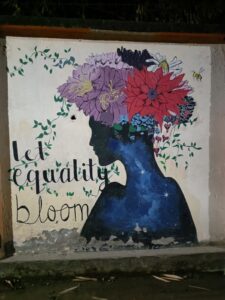
We have learnt through the project that there are no easy answers when it comes to working for greater social justice in natural resource management – or any other sector. This means that each process of change looks different from the next and cannot be captured in a single toolkit – hence we have no such toolkit to share as an outcome of this project.
We recognise multiple limits to our project, including that whilst we came together in a safe space to share experiences and ideas, and to build supportive relationships, that that space and time was limited. Practitioners continue to have to negotiate power relations on a daily basis within their own project work, institutions and socially. We see our project as the necessary first step to re-imagining gender equality and social inclusion in Nepal’s CBNRM, but transforming those injustices will take time.
However, key learnings from our project suggest that:
- In order to change the unjust systems we work and live in, we first need to look at how we ourselves are affected by them
- In order to challenge unequal power relationships, we need to make power visible
- In order to create alternative futures, we need to support and care for each other
- Remember: Change is not linear but rather an on-going process; it is often ‘messy’
- Remaining hopeful is a political act
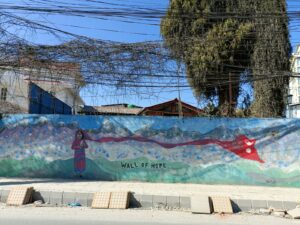
Our project ran from the end of 2021 until the end of 2022. It builds on previous collective efforts and will continue with more into the future. The wonderful support from participants’ colleagues, friends and families shown at the project’s closing workshop – where we watched the film together – helps to keep such efforts alive in homes and workplaces.
If you would like to know more, please do get in touch with Sam Staddon on sam.staddon@ed.ac.uk
Facilitators
- Dibya Devi Gurung
- Gael Robertson
- Manohara Khadka (IWMI, Nepal)
- Kalyani Menon-Sen (Gender At Work)
- Sam Staddon, Clare Barnes and Omar Saif (University of Edinburgh, UK)
Further information on the project
Collective efforts that proceeded this project have been written up as a journal article, which is open access and available online here:
- Staddon, S., Barnes, C., Gurung, D. D., Robertson, G., Khatri, S., Pariyar Kumar, S., Lama, S., Neupane, K. R., Rai, M., Shrestha, A., Shrestha, G., Lal Shrestha, S., Shrestha, S., Shrestha, S. & Upadhyaya, R., (2023) Attempting affirmative political ecologies: Collective transformative learning for social justice in Nepal’s community forestry. Journal of Political Ecology, 30, 962-985.
Funders
- Impact Acceleration Grant (EDI-21/22-P0043), Economic and Social Research Council (ESRC), UK
- In kind: International Water Management Institute (IWMI) Nepal, Gender At Work, University of Edinburgh
